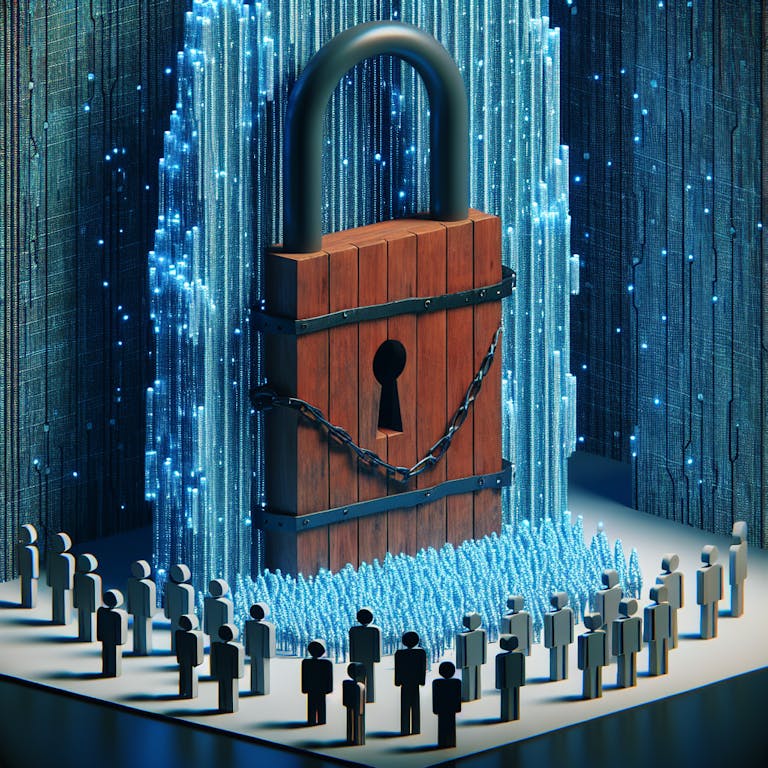Follow the Podcast on iTunes and Spotify
By the year 2020, it’s predicted that millennials will comprise around 50% of the workforce. In fact, it’s already the case in a number of young companies in the country.
SEO Hacker has a team that is composed of 90% millennials. That includes the management team that is all around 30 years old.
I have two guests for this episode. The first of which is my wife Apple. She’s been working with us for almost a year and has been enjoying handling our primarily millennial team.
The other guest is Kevin, my brother and the COO of SEO Hacker. He’s been working with me for around seven years and has helped build up the success of our company.
For this episode, we’ll be discussing mostly about Millennials along with many negative stereotypes that have been directed to them.
The first question for the podcast is simple: What is the problem with millennials?
A lot of managers believe that their millennial employees have a lot of character flaws, but they don’t necessarily know where these came from, or how they were developed.
Kevin states that the majority of the problems that we’ve come through with millennials would come from their reliance on their parents.
As a rather pampered millennial himself, Kevin is very familiar with this line of thinking. He also believes that the majority of our team, as well as some probationary teammates that chose not to stay, had this problem.
That they are very confident in their abilities, but their actions don’t showcase their true capabilities.
We have a lot of potential, we have a lot of knowledge available on the Internet, and we have a lot of things we can learn and grow to.
Majority of the time, we’re not there yet, but we think that we are.
And one of the most driving factors for us to develop this mindset is because our parents loved us so much as the way that we are, that we never really tried to excel.
We think “good enough” is good enough.
Kevin particularly shared that in his past, instead of striving for experience and learning to excel, he always settled with getting a mediocre grade. I’m not trying to fail, and I’m not trying to succeed either. That’s been his life.
A lot of studies show that Millennials are the way we are because baby boomers and Gen X-ers have groomed us in such a way that we are able to live our dreams, do what we want, and follow our heart.
I think that pretty much shaped the millennial generation.
That we are the generation that can do whatever we want.
This led to some people settling on just being okay and being complacent. This is because they want to live life like they did growing up. Unfortunately, that’s not how the world works.
Apple pointed out that some parents wanted their dreams to be lived out by their children, the Millennials.
Some of them didn’t want us to experience the difficult times that they had.
The parents of the Millennial generation wanted their children to enjoy the fruits of their labor—which in some cases turned into entitlement.
This then translates into the workplace. In order to effectively manage our millennial workforce, we also have to manage our parents. This is something that we’ve observed over the years of having a 90% millennial workforce.
As Kevin stated, we have always considered them in how we process events and how we communicate our messages. We make sure that whenever we provide perks and benefits, we consider what impression it will make to the parents as well.
A lot of parents have their hands around the lives of their millennial children. And so, whatever the parents decide will ultimately affect the career of the millennial worker.
It’s also worth pointing out that there are millennials who have found a way to rise above this influence, and you’ll see how independence facilitates growth in how they think, how they interact with people, and how they work.
Independence produces a different shift in their character.
The next question focuses more on why Millennials are not passionate about their job.
This was originally a question from one of my talks for Leadership Stack. I was really interested in this, and that’s why I decided to hear out the thoughts of my own team regarding it.
Kevin thinks that this is only applicable for millennials who were forced to work jobs that they didn’t really like, all because of their parents.
I’m sure that most of you know someone that was forced into a career that they didn’t really like. Primarily through their parents forcing them to choose and stick through a college degree of their choosing.
A great example would be writers. They are some of the most passionate people that you can meet since most of them have their own style.
On the other hand, Apple thinks that they’re not quite as passionate about their careers because they didn’t have the right expectations.
In most cases, their expectations lean towards the privileges that they get with the job instead of the job itself.
A lot of the time, millennials would boast of their upbringing (usually where they graduated) and use that alone as a crux to bargain for a starting rate that is too high. Or that the fact that they’re working in Makati should automatically give them perks such as working from home.
So when these expectations aren’t met, they immediately feel like they lost. In fact, it’s their first job so they’re supposed to be there to learn and grow in their career.
I think that millennials are misunderstood because I personally believe that they’re the most passionate people when it comes to their jobs. they feel a lot about doing something that will help make the world a better place.
That’s why they leave when they think that the job is not for them. They leave when they think the job is no longer worthwhile.
What Baby Boomers, Gen X-ers have that millennials don’t is grit. They have the tenacity to endure. They have the capacity to stay. And they can tolerate whatever comes for them.
That being said, you should look at the bigger picture.
During the time of Gen X-ers and Baby Boomers, jobs were hard to come by. Landing one would already mean a lot. Not to mention the difference in technology at the time. There was no internet at the time, so everything, even just learning about a few things, was somewhat tiring. You have to go to libraries where you have to borrow or buy books for your research.
Everything else was harder before when compared to how readily available information is today.
It’s not that millennials are not passionate about their work. As I’ve said, they’re the most passionate ones. It’s just that they can’t take it when they don’t feel strongly about what they’re doing.
This led to Kevin asking if there’s a difference between passion and emotion. Are millennials passionate or emotional?
Passion is a lot of things, it’s a strong desire or something that you are very willing to suffer for.
Millennials are willing to suffer for something that they truly believe in. That’s why they go up and leave. They have to feel a strong desire about whatever it is that you give them for them to stay.
We can say that they’re passionate, but not passionate about the job or the company. They’re passionate about their own means, their own goals—which is again, they want to help. They want to do something big.
The better question would be how you make them part of something bigger.
Apple then asked how I would relate the millennial’s exploratory spirit for hopping job and going on an adventure to being passionate.
I think that millennials that are only hopping jobs for the sake of an adventure, when in fact they’re already happy with their work and feel like they’re part of something bigger, are nothing short of selfish.
Particularly speaking, I think it’s the mindset that is truly selfish. They only think of what’s good for themselves, not the company that they’ll be leaving.
An employer’s goal then is to try and avoid these kinds of people. And the only way to do this is to know what to ask during their job interview. How do we know when a person is likely to just suddenly get up and go from an already decent job?
Apple thinks of asking the individual about her goals and how the company can help you? What do you want to achieve in your life?
Both of which are very good questions to ask to gauge whether a person is going to stay with the company.
A viewer by the name of Brian Bernabe introduced the idea of millennials always looking for a challenge, and once their job is already easily achievable, they move on in search of another, challenge.
Apple agrees and further emphasize the importance of letting team members try out other roles as a means of facing a new challenge for them.
As much as it makes sense, the competitiveness and the active search for the next challenge is something that Kevin has mixed feelings towards because it’s not something that always happens.
He thinks that it’s a challenge because he knows that there are a lot of people that are very passive. They would not have the initiative to request these changes and so they’ll just be waiting for the management to do it for them.
However, if you find a person that is continuously looking for more challenges, more things to do, that’s when you know that you find someone that’s worth keeping.
Those who have initiative, those who want to grow, those who want to face new challenges even though they’re not part of their job description.
Honestly, letting teammates freely look for new opportunities within the office is possible, but not necessarily easy to do.
For Kevin, keeping millennial employees from leaving isn’t just about bringing them new challenges. One thing he really values is the culture and close communication with the management.
We’ve continually provided many avenues wherein our team members can communicate their thoughts and concerns with us.
And based on his observations, those who participated, those who were open to sharing their thoughts and feelings tend to stay longer, when compared to those who were apathetic.
Connecting with our teammates on a more personal level really helps. Since we can understand what they’re going through and we’ll provide advice and wisdom.
Once you have this kind of relationship, you’ll feel as if you have developed a different yet mutual respect for one another.
Basically speaking, in order to keep millennials from leaving your company, there should be an active connection between the management and the team members.
For many businesses, this connection is relatively hard to pull off, that’s why I plan on releasing Teamstrr, a software that helps do just that later this year.
Teamstrr aims to close the gap between team members and the management by providing a means where the team can share their thoughts, what they’re thinking and feeling, to the management.
This did beg the question of whether or not sharing their thoughts is a big deal for them, the Millennials.
To start off the conversation, Kevin first stated that the majority of millennials are introverts. The majority of millennials are selfishly passionate. I believe that they’re also primarily introverts solely because of the rise of digital.
Take for example our childhood. Me and Kevin never really played with our neighbors. We had our TV, our Play Station and those were enough to make it feel like we were socializing digitally. We were cultivated to be introverts.
That being said, most introverts become sociable through the use of digital systems. This is what Teamstrr aims to solve. It is a platform where the team can share their inner thoughts.
Apple shares that the capability to share inner thoughts is something special. Some of our recent applicants share that in their previous jobs, all they do is just that. They don’t really get to talk to the management, overtime was encouraged, everything was nothing short of toxic.
They felt like they were robots.
With Teamstrr, we can make every individual feel human.
Everyone will almost always have something that they’re going through, and that can definitely spill into the workplace.
Through this tool, we can focus on empathizing with our team as well as to let them know that there is someone much like a mentor that is willing to give the time to empathize and to pray for you.
This is a big deal because these introverted millennials are not comfortable doing that face-to-face. They’d much rather post it on social media and avoid the confrontation that comes with face-to-face conversations
You can liken Teamstrr to social media where you can just post things out and people may or may not notice it. However, with
Teamstrr, you’re basically sharing, or ranting right to people who can help you find a solution.
The sharing of thoughts and feelings come in the form of two things. Fast Feedback Loop and the Weekly Mirror Report.
Basically, they’re a list of guide questions that the team has to answer.
The management then, as much as possible, replies to every one of these.
Kevin believes that the more you unlock their contentment and joy, the more they become efficient with work. They’ll be more willing to work hard, and to care more for the company as a whole.
He feels that as long as your team knows that you genuinely care about them, then they’ll return the favor.
He believes that it’s not the perks or the benefits that are part of the job that makes the team stay, it’s the fact that the management cares for them.
Another thing that Kevin pointed out is that our generation is arguably the most problematic generation to date. With the increase in parental problems, cases of depression and anxiety, addictions, etc. these millennials are genuinely looking for someone who cares.
This collides well with our point earlier that the parents of these millennials have a foothold in their lives. And yet they’re still looking for mentorship elsewhere.
Apple then shared her idea of millennials being too scared to open up to their parents because they’re afraid that they will not provide any constructive criticism to their inner thoughts. They’re looking for mentors whom they can divulge information that they can’t share with their parents.
We can’t really say that it’s the fault of either the parent of the millennial, rather it’s a gap between the communication the family.
In relation to this, Kevin introduces the importance of initiative. Much like this, when a company gets Teamstrr and just lets it be, then nothing will happen. If you take the initiative and encourage the team to fill it out, then it will start working.
To Kevin, that’s the problem. Not a lot of parents sit down and start a conversation with their children. They just wait for it to suddenly burst out of nowhere.
Another point of interest introduced by James Del Rosario is that a lot of Millennials want to be recognized. And that’s relatively true. However, recognition wasn’t really given freely in the workplace.
I remember a phrase that states “The last applause that people 80-90% of people ever get is during their graduation.
We at SEO Hacker remedied this by adding something we like to call the claps session during our weekly meetings.
The claps session is something we do at the start of the week that we used to recognize people that had gone an extra mile to do something for their team.
We do not encourage overtime, but these people still take on the extra work because they really care for their team.
Aside from that, the claps session also helped make sure that those who are filing for leaves really need them, especially for sick and emergency leaves.
Going back, Apple further discussed about recognition as a millennial. As a note, Apple has been working with her father for the past nine years. Nowadays, she’s only working part-time, but even then, she believes that recognition is a really big thing.
It’s a big deal because, for a lot of people who work in the family business, they would usually not get a lot of encouragement from them. Everybody there expects you to work excellently because you’re the son, the daughter, or even the brother of the owner.
Recognition, and better yet, appreciation is a big thing for millennials.
Onto the next question, we discussed why exactly millennials leave early, leave abruptly, and hop jobs.
Aside from the lack of recognition, which has already been discussed in-depth just a while ago, another reason is that some millennials get overworked because they’re asked to do additional tasks that are not part of their job description.
This means they’ll have to juggle their main responsibilities and the extra tasks, while also being compensated for just the job that they applied for.
That being said, this is only bad when the person given the responsibilities does not want them, and only expected to work within the job description.
It’s different, however, when it’s the individual that took the initiative to ask for additional work because it’s a means to grow even more. Kevin believes that doing something that isn’t necessarily your responsibility is a means to facilitate amazing growth. This is because you develop grit, negotiating and a lot more.
Apple further iterates that even though taking in other tasks can facilitate growth, the team member should still know their own limits and communicate it properly to the management.
And if they can’t do so face-to-face, then they should use a tool, such as Teamstrr, to do it.
There is also an abundance of choices. Putting it in a dating perspective, the experience that our parents had was definitely way harder compared to today with different apps and social media sites that facilitate socializing.
We are at an age where options are freely given and handed out to you. Having so many options invalidates the notion of being committed by choice. Commitment is one of the biggest factors. And it can often be stemmed from either them having more options, or because they’ve been hurt before.
Kevin’s most recent experience was the former. Millennials may seem incredibly altruistic, but there are some of them that truly care—that have empathy. But there will almost always be that individual that will jump ship as soon as a bigger, better opportunity arises.
This is most common when an applicant has already been accepted, a deal has been made, but they won’t show up on the first day saying something came up.
Apple argued that this can be connected to the first topic of the day, which is that these millennials are not as passionate as they think they are for the job they applied for. the millennials are passionate about themselves, as they want the best for them.
Millennials might just be the most self-serving workforce because they’re comfortable with how they’re already living.
To me, that’s just being lazy. And it’s not really something that can be logically answered as each Millennial has their own mindset.
A more significant discussion would be:
With all this knowledge, how can we prevent this from happening?
Kevin suggested to curb the aspect of commitment from them, the applicants, to us, the company. One of the ways to do that is by forcing them to come using the bonds and rules. By clearly setting expectations and rules.
That if the individual doesn’t come, there will be a consequence for that. This is something that you have to tell them explicitly.
This is one of the reasons why Apple, during our interview process, states, right from the get-go, that we expect loyalty. That they’ll be with us for at least 2 ½ years. Anything less is not optimal.
One of the ways we have prevented this from happening is by elongating the application process. It’s now composed of 6 steps over the course of a few days. Once an applicant reaches the final interview and gets accepted, they will almost surely show up on their first day of work.
That being said, there are some rare cases that even when they finish the interview process, they don’t show up, showing that there’s no perfect application procedure.
Some say it’s because millennials feel that they deserve something more than just the offer that is brought to them. Oftentimes, this sense of entitlement can really convince them to keep on hopping from one job to another.
That being said, why do people say that millennials are entitled?
Apple thinks that it can be boiled down to how our parents pampered us. How they made sure that we won’t experience the hardships that they did when they were young.
Another point worth noting is the rise of digital. Things were definitely tougher before.
She further shares that humans, in general, are entitled. We think that life is supposed to be that easy.
And at the end of the day, it’s a lie.
Life is tough.
I personally think that social media fuels a lot of the entitlement that we already have.
And in that case, you can say that It’s not just the millennials, but all the people, that are entitled.
Take into consideration the 10th commandment. You would already know that people are capable of that kind of mentality, much like jealousy where some people think that they deserve something just because they saw someone have it on social media.
One of the things that propelled this idea of entitlement is that when most of our parents asked for something from their parents, they didn’t get it. During our generation, our parents provided us with things that we didn’t necessarily ask for primarily for our convenience.
Kevin thinks that that aspect is something we just carried on with us. The idea that our parents pampered us so much that we felt like we deserved such treatment.
You can say that your parents are the people that can have the most influence in your character and your perspective of the world.
Although not necessarily something that you can immediately learn about a person, this is something that anyone that is managing millennials should at least understand.
For those who are actively handling millennials, you can do a lot of things to remedy this entitlement mentality.
As people who are part of the management, you have the advantage of having this forced respect where the millennial team members are forced to listen to you. You have a platform to talk to them.
Make relationships. When you create relationships, millennials are susceptible to putting their guard down, they ask what exactly this person is trying to teach me.
When you talk about personal wisdom, it can affect them on a deeper level.
We must keep in mind that even with how easy it is to communicate with people nowadays, people are growing more distant in terms of intimate wisdom.
For SEO Hacker, one of the main reasons that helps keep entitlement at bay is us writing down and living out our core values.
One of our core values is grit. Which means that you have the resilience and the tenacity to keep moving forward despite all odds. Mistakes are nothing more than opportunities to get better. And that the world is not a wonderland that will make sure you’re happy all the time.
Nobody needs entitlement. It’s one of the things that is not needed in the workplace. It’s bunched together with things like gossip. It’s something that we, as the management, need to keep it at bay.
Given all this information, what exactly should we, as employers, as the management, do in order to make millennials stay on our team?
Apple thinks that a big part of the reason why they stayed is because we continuously communicated with them, we had a genuine interest to see how much they’ll grow and how far they’ll reach in the future.
We help them holistically by knowing them as a person.
Kevin mentions how a book by Brene Brown titled Dare to Leap. It talked about vulnerability and how each person has their own suit of armor that should help defend the individual from criticisms.
That being said, one thing that millennials are looking for is authenticity. They can see through even the most well-crafted of lies.
You should be authentic with them. they’ll appreciate the hard truth more than a speech full of flowery words.
Second, they have to know that we are greater than them. We should continuously raise the bar higher and higher. We have to be the person they aim to be.
I think that another way that our millennials will keep staying in our team is to give them the right positions.
You would rather your teammates love what they’re doing rather than just be stuck in a job they don’t like.
The funny thing is that you would realize that a lot of the millennials really want to share these urges and that’s what Teamstrr helped bridge.
In my company, there are a few cliques with which they’re very comfortable sharing their thoughts. With Teamstrr, however, it gives them another platform to share with us as well.
People like sharing their thoughts with a mentor, or with someone that they believe will genuinely care about what they have to say.
You should keep in mind, however, that Teamstrr is not an end-all-be-all solution. You, the management, should also do your part in making it look like you’re a mentor, you’re a leader, that you’re a person that cares for your team.
Millennials have always been told that we can be whatever we want. But then again, that’s not how the world works. We should know what is realistic, and which ones are not.
Know that God has a custom-made place that is made for you. And you will eventually find that place in due time. Not everything that will go your way is sunshine and rainbows. But at the end of the day, you’ll reach the destination that God planned for you.
Steve Jobs once said “It’s bitter medicine, but the patient needed it” pertaining to the time when he got kicked out of Apple.
And that’s something that parents and even company leaders should understand. You can’t just tell people that rely on you that life is going to be great, because the honest truth is that it’s not.
It’s going to be bitter. But you will need that medicine to get better. Because without it I wouldn’t have reached this point in my life.









